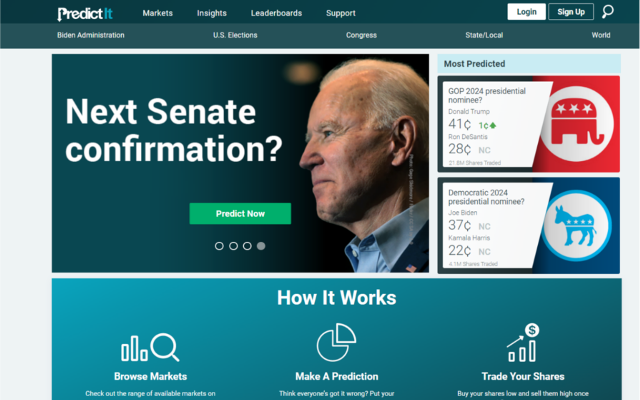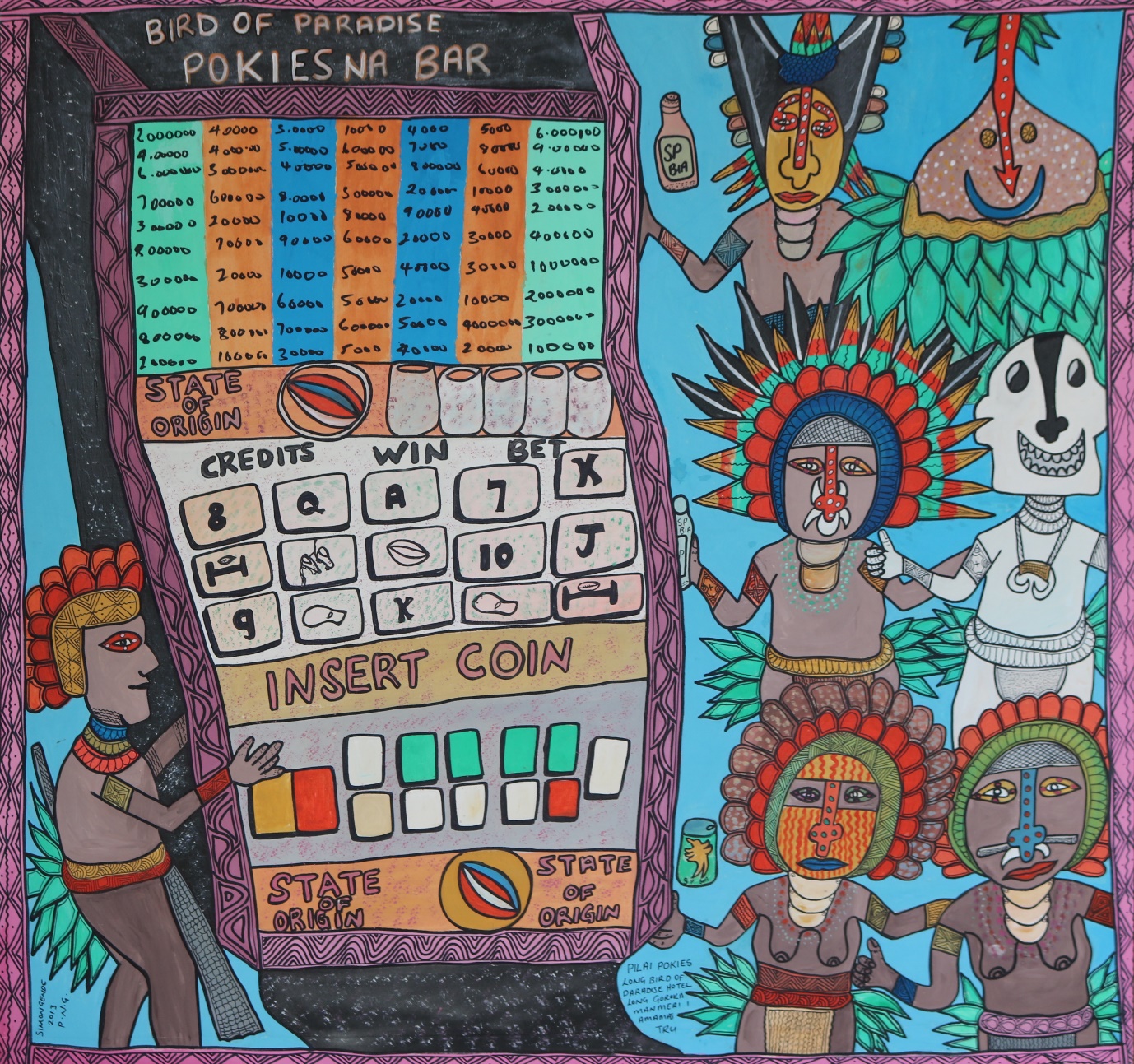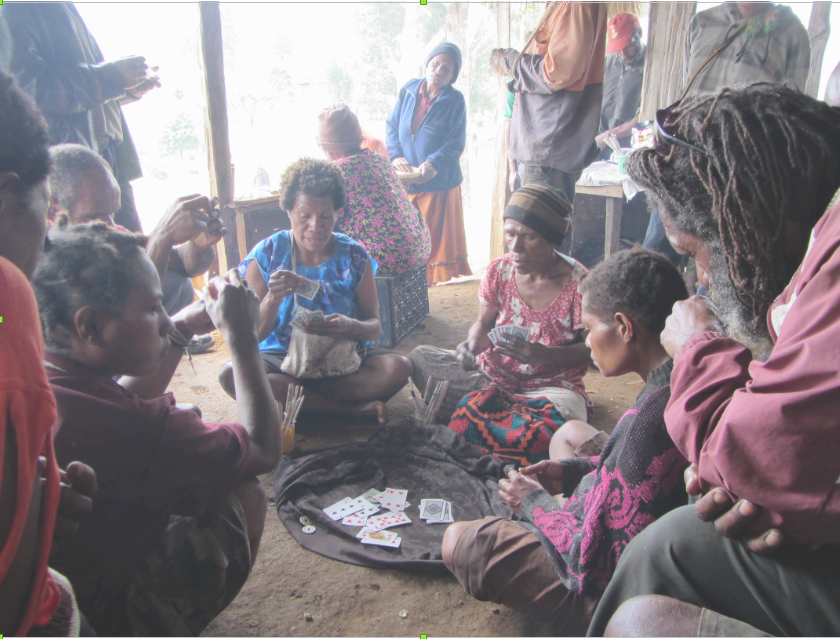Interview with ASA Conference Liaison officer: Anthony Pickles
What are you working on at the moment?
In January 2022 I started a new project looking at gambling on political outcomes and the ‘prediction markets’ that result from aggregating those bets. An example would be Nigel Farage (or anyone) betting on the outcome of the Brexit Referendum. Political events (i.e. the ‘action’ in political gambling) matter a lot more than a typical horse race, so these markets contain punters’ ulterior political motives, but if pure profit is your aim, being a nihilist is a big advantage; party loyalists can be easy prey. As an aggregate, these markets have earned a big reputation for accurate prediction in economics. I am going to be working with academics, arbitragers, bookies, bloggers, market-makers, political analysts and punters. I will be asking how market speculation refracts political understanding? And why gambling on politics is surging?
 A screenshot taken from predictit.org on 7/1/2022
A screenshot taken from predictit.org on 7/1/2022
And why is gambling on politics surging?
I can’t speculate at this early stage (as the gambler said to the vicar!), but gambling in general is surging, partly because digital technologies are becoming ubiquitous, more connected, and they have enabled people to transact across jurisdictions with ease. I have done previous research on how new gambling technologies and gambling itself was taken up across large populations. I learnt that while the technologies used for gambling help new practices to be transmitted quickly, when whole populations become gamblers it usually means that gambling resonates with wider feelings of uncertainty. Gambling can make an unpredictable life seem more comprehensible. Gambling on big political events is now larger than the most popular sporting events, so I suspect that thinking about politics as a game appeals to people’s general unease about where politics is heading. I will just have to wait and see on that front. The other aspect is how the prediction markets are harnessed as predictive tools, and then financialised in lots of different ways. That financialising dynamic is a key part of finance-centred capitalism, but it is going to be interesting to see how this affects ideas about how politics operates.
If this research is new to you, how did you get to this point?
I have done ethnographic fieldwork in Papua New Guinea from 2009 until now. I was always interested in how people adapt to new circumstances, especially when changes involve some kind of new technology. I have therefore looked at things like how clothing with pockets in them and cash as a valuable enabled new ways to hide and reveal wealth, and about how electronic spreadsheets affect bride wealth contributions. I became especially fascinated with how gambling, which was introduced to my field site in the 1950s, became a way for people to experiment with manipulating the value of cash—which was also introduced in the same decade. Gambling became a way for these people to try to take charge in a world that often seemed beyond their powers of interpretation. So, in a way, my new research brings it all back home, to learn about how people respond to uncertainty and make it comprehensible.
 “PILAI POKIES LONG BIRD OF PARADISE HOTEL LONG GOROKA MANMERI I AMAMAS TRU”, Simon Gende, Papua New Guinea,
2010.
<>
“PILAI POKIES LONG BIRD OF PARADISE HOTEL LONG GOROKA MANMERI I AMAMAS TRU”, Simon Gende, Papua New Guinea,
2010.
<>
You are a social anthropologist, but you teach in Development Studies, how does that work?
Like a lot of social anthropologists, I teach students who are interested in something broader than anthropology. In my case I teach a combination of undergraduates who take an interest in anthropological approaches to development, and a very diverse set of master’s students who want to learn more about how to apply social science to development situations that they have direct experience of. That means I am always thinking about how social anthropology can be relevant to issues of social justice and how to teach it so that students can apply critical thinking while making real-world decisions.
 Card players in Simbu Province, Papua New Guinea, 2013. Photograph taken by Anthony Pickles.
Card players in Simbu Province, Papua New Guinea, 2013. Photograph taken by Anthony Pickles.
What’s your role on the ASA committee and why did you decide to volunteer some of your time to the association?
I am the ASA’s Conference Officer, it is my job to find hosts for the ASA conferences and to be pro-active in developing new ways for the ASA to facilitate engagement among anthropologists and with the broader public. I took on a role with the ASA because I believe it is important to live the values I espouse. I think that the ASA is the best vehicle social anthropologists have to ensure as much social justice within their discipline and its socio-economic milieux as possible. I took on this particular role because I have experience organising conferences for the European Society for Oceanists. My aim is to make sure our fora are inclusive, contemporary, and unique.

